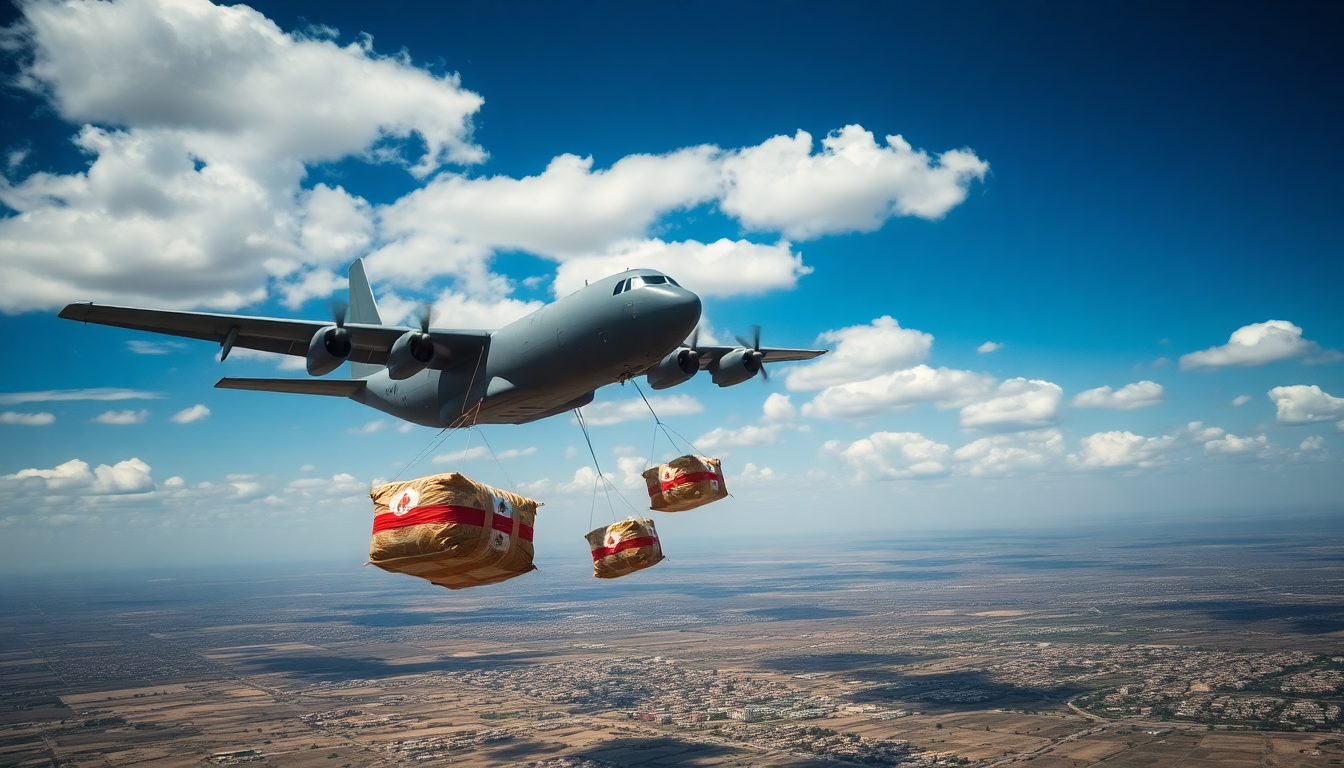Table of Contents
In a bold move to tackle the growing humanitarian crisis in Gaza, the Canadian Armed Forces recently executed an airdrop of vital aid. This timely intervention comes when access to humanitarian support is more critical than ever. With a CC-130J Hercules aircraft delivering over 21,600 pounds of supplies, Canada is demonstrating its commitment to alleviating the suffering of Palestinians who are facing unprecedented challenges.
Understanding the Humanitarian Crisis in Gaza
Canadian government officials have been vocal about the urgent need for increased humanitarian support in the region. Foreign Affairs Minister Anita Anand and Defence Minister David McGuinty pointed out that this airdrop is just one part of a larger strategy to collaborate with international partners in providing much-needed assistance.
Why is this intervention so crucial? Reports indicate significant restrictions on aid access in Gaza, leaving many people in dire straits.
This latest initiative follows a previous effort where aid was sent into Gaza via Jordan, showcasing Canada’s collaborative spirit in navigating the tricky waters of delivering assistance in such a politically sensitive area.
The Canadian government has made it clear: improving humanitarian conditions requires a substantial increase in aid, along with guarantees for safe and unfettered access for humanitarian organizations. Isn’t it vital to ensure that help reaches those who need it most?
What’s Happening Now and What’s Next?
The decision to carry out an airdrop is part of a series of actions taken by Canada, which may include plans to recognize a Palestinian state at the upcoming United Nations General Assembly. This potential recognition has stirred mixed reactions, especially from Israel and the United States, who are concerned about how it might affect diplomatic relations and ongoing peace negotiations.
Prime Minister Mark Carney has emphasized that any move towards recognizing Palestinian statehood will depend on the Palestinian Authority’s commitment to essential reforms, like governance improvements and holding elections. While the Canadian government advocates for a two-state solution as a viable path to peace, it also recognizes the complexities posed by ongoing Israeli settlement expansions and the challenges in delivering aid.
How can Canada balance these intricate political issues while ensuring aid reaches those in need?
As Canada navigates this complicated political landscape, the focus remains on making sure humanitarian aid is delivered effectively. The government has stressed the importance of speeding up customs procedures for aid delivery and granting long-term visas for aid workers to facilitate ongoing support.
Facing Challenges and Global Reactions
While Canada’s humanitarian efforts are commendable, they come with their own set of challenges. The complexities of international law and the ever-changing political dynamics in the region create hurdles for consistent aid delivery. Recent criticisms from both Israel and the U.S. complicate matters further, as they express concerns about the implications of recognizing a Palestinian state amidst rising tensions.
Despite these challenges, the Canadian government remains committed to addressing the humanitarian needs of Palestinians. However, it must also weigh the geopolitical implications of its decisions. The call for an end to restrictions on aid access resonates in statements from officials, underscoring the need for adherence to international humanitarian law. Can Canada effectively navigate these waters to ensure the safety and well-being of those in Gaza?
In conclusion, Canada’s efforts to provide humanitarian assistance to Gaza reflect a broader commitment to global humanitarian principles. As the situation continues to unfold, ongoing advocacy for safe and effective aid delivery is crucial in addressing the urgent needs of those impacted by this ongoing crisis. How can we rally together to support those in need during such challenging times?





